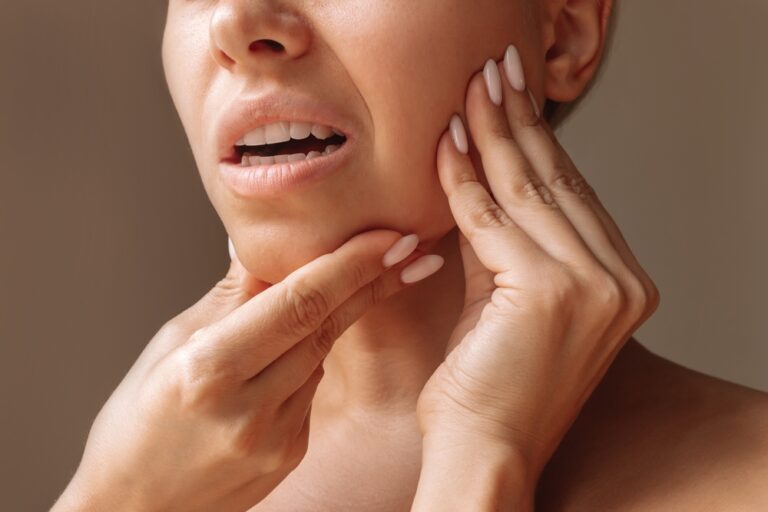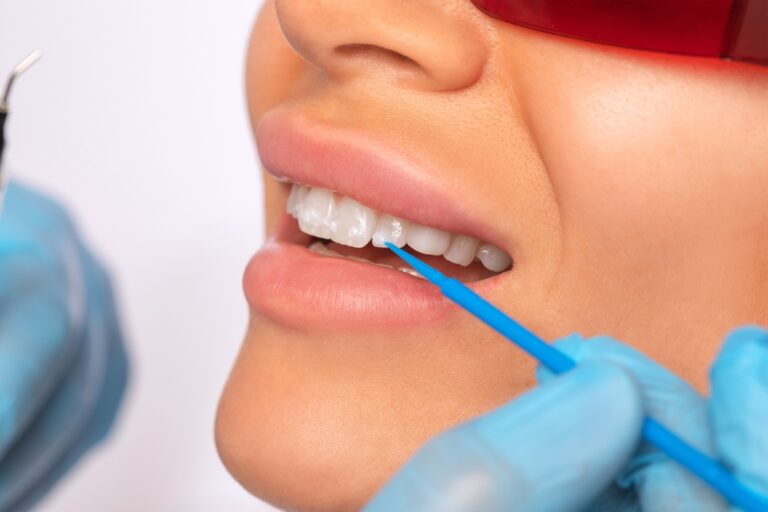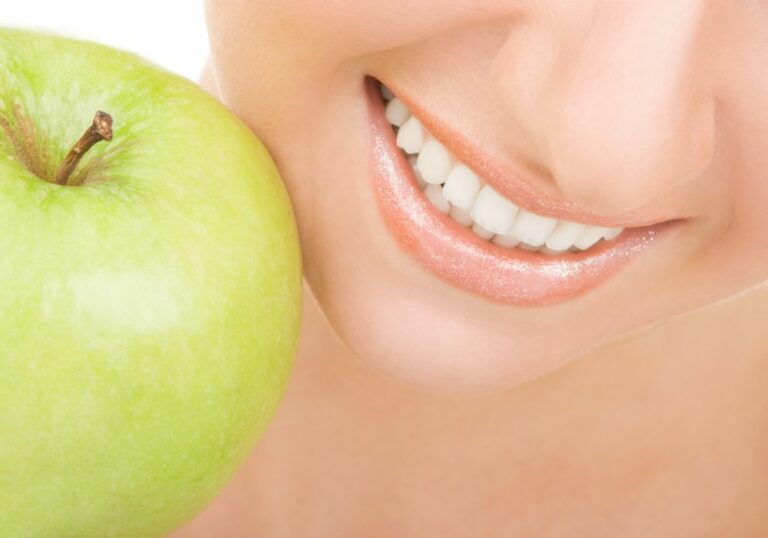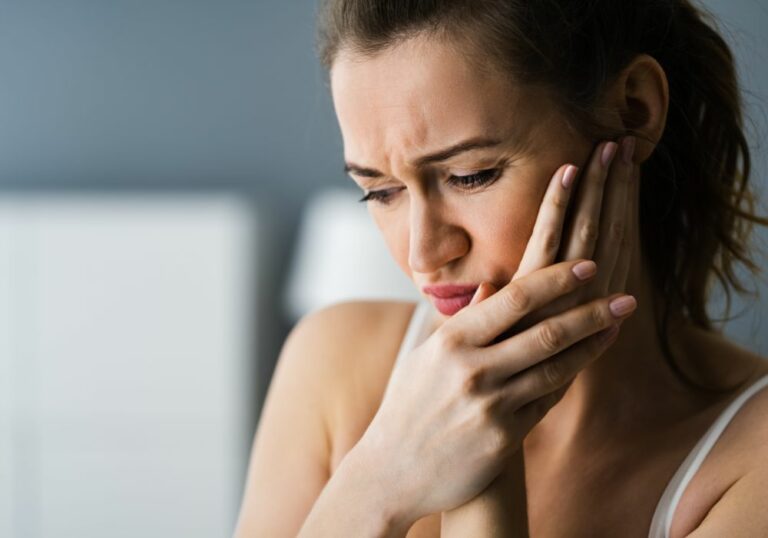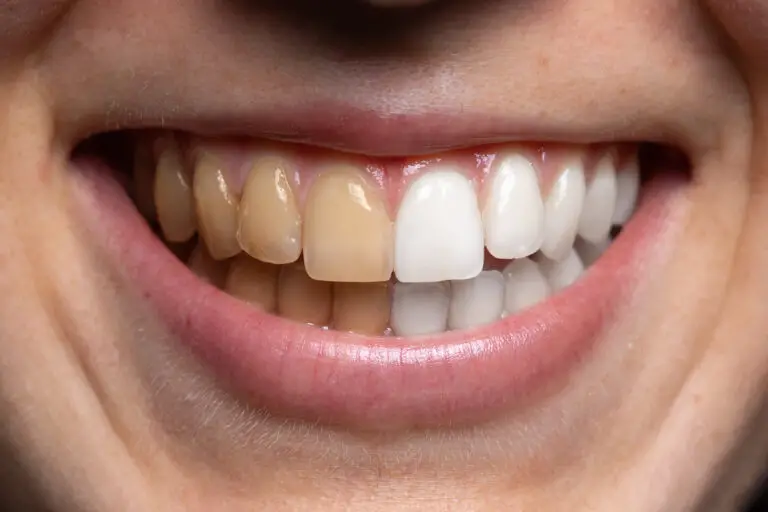It’s an odd and little-talked about sensation that many people experience from time to time – the ability to “taste” or sense the presence of one’s own teeth. You may notice it while eating, drinking, running your tongue over your teeth, or even just sitting idly. The teeth seem to emanate a distinct flavor or texture that isn’t quite like anything else in your mouth.
Some describe it as a chalky, sour, or metallic taste. Others say it’s more of a slick, porous sensation when the tongue rubs over the teeth. Whatever the qualitative nature of the tooth taste, it is a peculiar phenomenon that we often take for granted. Very little scientific research has investigated this background sensory experience that most people surprisingly share.
Potential influences on tooth taste
Although an exact physiological explanation remains elusive, there are several potential influencing factors for why we can taste our own teeth:
1. Plaque and bacteria
One of the most commonly cited reasons is the buildup of plaque on the surface of teeth. Plaque is a bio-film composed of bacteria, oral debris, saliva components, and dissolved minerals from the teeth and saliva. As plaque accumulates, especially along the gumline and in the microscopic fissures of the teeth, it provides a porous surface coating for bacteria to inhabit and thrive. The metabolic processes of the bacteria release various volatile waste products that have distinct tastes – often described as bitter, sour, or metallic.
Over 700 species of bacteria have been found in oral plaque. As their numbers and metabolic activity increases, especially following meals or during overnight sleep, the taste intensity seems to worsen. Sulfur compounds released by certain plaque bacteria produce an especially foul rotten egg odor. Given its location, plaque also makes the tongue’s contact with the tooth surface much more textured and noticeable.
2. Tooth composition
Beyond just plaque, the composition of the teeth themselves – primarily hydroxyapatite crystals arranged into rods – has a mildly salty, mineral-like taste. The porous ultrastructure of enamel and underlying dentin soaks up microscopic debris, contributing to taste. Teeth also readily absorb stains and compounds from foods, drinks, and smoking that alter taste.
3. Saliva variations
Saliva helps neutralize and wash away molecules that cause funny tastes on the teeth. But saliva flow varies widely – from nearly 0 at night to up to 2 liters per day normally. When saliva flow is reduced, such as when sleeping or due to medications, food particles and plaque buildup faster on teeth. Lower saliva also means less dilution of dissolved taste compounds.
Saliva composition also varies day to day, including variable salt and enzyme content. Changes in saliva pH, minerals, and proteins affect how well it neutralizes tastes clinging to the teeth.
4. Microdamage
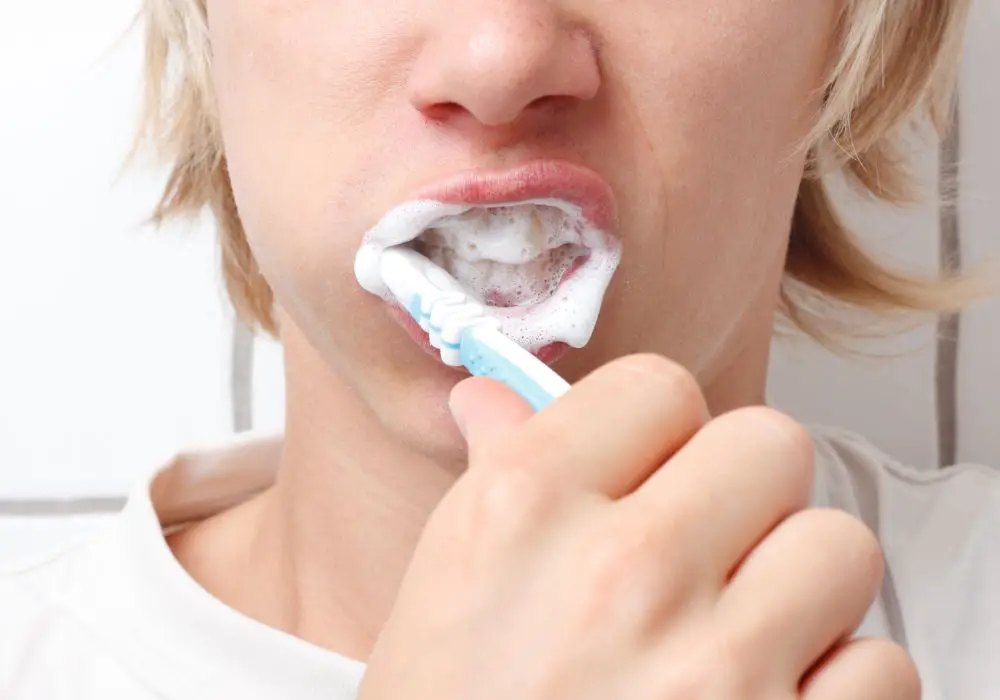
Tiny cracks and defects in the tooth enamel resulting from chewing, grinding, or age provide more surface area for bacteria, plaque, and debris to accumulate. Cracks allow stagnant pockets of plaque to form that constantly release taste molecules faster than saliva can clear them.
5. Oral hygiene habits
Proper oral hygiene habits like brushing, flossing, and using antiseptic rinses physically clear bacteria, food debris, and plaque off teeth that contribute to unpleasant tastes. Irregular hygiene allows taste-generating buildup to persist and slowly accumulate. Things like mouth breathing and tobacco use can also dry the mouth and worsen plaque issues.
6. Medical causes
Some chronic medical conditions affect tooth taste as well. Sjogren’s syndrome and diabetes both reduce saliva flow in the mouth. Gastroesophageal reflux can cause stomach acids to erode tooth enamel and dentin. Sinus infections can sometimes alter taste sensations. Medications like antihistamines, diuretics, muscle relaxants, and pain pills reduce saliva secretion as a side effect. Always inform your dentist of any new medications you start taking.
When a lingering tooth taste becomes concerning

For the most part, being able to occasionally taste your teeth is normal. But if the tooth taste is very pronounced, persistent, and bothersome, see your dentist promptly. Frequent heavy plaque buildup, untreated cavities, periodontal disease, or dental abscesses could be making the issue worse.
Your dentist can identify any underlying dental conditions contributing to the taste. A professional dental cleaning is often recommended to remove any plaque, tartar, and bacteria buildup on your teeth and gums. For stubborn tooth taste issues, your dentist may prescribe special antibacterial rinses.
See a dentist right away if the tooth taste is metallic, salty, or bitterness is isolated to just one tooth. This may indicate a dental health problem needing immediate treatment, such as:
- Tooth infection or abscess
- Advanced tooth decay or cavity
- Cracked or fractured tooth
- Gum disease
What makes the tooth taste worse?
Many factors can influence the intensity of a tooth taste from day to day:
- Time of day – Tooth tastes tend to be more pronounced in the morning due to lower saliva flow overnight. Plaque bacteria proliferate easily in the dry stale environment while you sleep.
- Eating and drinking – Consuming staining beverages like coffee, wine, or tea causes tooth discoloration and absorption of bitter compounds. Food debris contributes to a buildup of plaque. Acidic foods also erode enamel.
- Smoking – Cigarette smoke permeates the microscopic pores in enamel and dentin, leaving stains and foul tastes that are hard to remove. Pipe and cigar smoking are even worse.
- Medications – Hundreds of common prescriptions and over the counter medications reduce saliva flow as a side effect. Less saliva allows plaque to accumulate rapidly.
- Grinding or clenching – These habits wear down the surface enamel over time, increasing microscopic fissures and cracks that harbor bacteria and debris. Jaw muscle tension also increases.
- Age – Older teeth develop more fissures, cracks, staining, and pockets around fillings or gumline where plaque easily builds up.
- Dry mouth – Chronic dry mouth accelerates plaque buildup and bacterial overgrowth. Causes include drinking too little water, mouth breathing when congested, autoimmune conditions, diabetes, or certain cancer treatments.
- Oral infections – Abscesses, gum disease, and cavities with tooth decay create ideal anaerobic environments for foul-smelling bacteria to thrive.
Factors affecting tooth taste
| Factor | Effect on tooth taste |
|---|---|
| Time of day | Tastes worse in morning due to less saliva overnight |
| Smoking | Absorbs stains and compounds leaving foul tastes |
| Medications | Reduce saliva allowing more plaque buildup |
| Age | Older teeth develop more cracks and fissures for bacteria |
| Grinding/clenching | Wears down enamel and increases jaw tension |
| Drinks | Coffee, tea, wine absorb stains and compounds |
| Infections | Cavities, gum disease increase bacteria |
| Dry mouth | Less saliva allows faster plaque buildup |
| Eating | Food debris contributes to more plaque |
| Acidic foods | Erode and damage enamel over time |
Preventing and managing bothersome tooth tastes

No one wants to go through life plagued by foul and unnatural tastes originating in their own mouth. Thankfully there are several self-care steps you can take to keep tooth tastes to a minimum:
- Brush and floss properly at least twice daily – This removes plaque buildup and food debris before it accumulates and begins to release taste molecules. Take the time to fully brush all surfaces.
- Clean your tongue – Bacteria and stubborn debris collects on the soft, porous surface at the back of your tongue. Gently scrape or brush the tongue which reduces overall bacteria in the mouth.
- Avoid staining foods and drinks – Beverages like coffee and red wine are notorious for tooth staining and taste alteration. Limit intake of strongly colored foods.
- Drink plenty of water – Staying hydrated keeps saliva flow normal, helping neutralize oral bacteria. Carry a water bottle as a reminder.
- Chew xylitol gum – The chewing motion stimulates saliva flow while the xylitol inhibits bacteria growth. Opt for a natural mint flavor for freshening breath.
- Use an antiseptic mouthwash – Look for antibacterial mouthwashes with cetylpyridinium chloride that deter bacteria growth for hours after rinsing. Use mouthwash at least once daily.
- See your dentist regularly – Get a professional dental cleaning every 6 months and routine checkups to nip any potential issues in the bud. Report any unusual tooth tastes.
- Get treatment for dry mouth – Ask your dentist about prescription medications or over the counter products to stimulate saliva secretion if you have chronic dry mouth. This will combat plaque buildup.
With diligence and healthy oral hygiene habits, bothersome tooth tastes can be reduced. But always see a dentist promptly if you have any dental pain, swelling, foul tastes, or other concerning symptoms arise. Don’t ignore your tooth trying to tell you something!
Frequently Asked Questions
Why do I notice a tooth taste more in the morning?
Saliva flow in the mouth decreases significantly during sleep, often by 95% or more. With little saliva being secreted overnight, bacteria and oral debris build up on the teeth faster. The overall dry and stale environment in the morning, coupled with morning breath bacteria, make tooth tastes more noticeable upon waking.
Is it harmful if I can constantly taste my teeth?
Not necessarily, but persistent unpleasant tooth tastes, especially when combined with bad breath, can signify plaque buildup or the presence of dental problems. See your dentist promptly if the tooth taste does not go away after brushing/flossing or if you have any other worrisome symptoms. Frequent heavy plaque buildup is detrimental to long term oral health.
What causes the white film I notice on my teeth in the morning?
That pasty white substance is plaque – a biofilm composed of bacteria, oral debris, saliva components, and minerals. Plaque starts forming immediately after brushing as bacteria attach to the tooth surface. With decreased saliva flow overnight, plaque builds up faster leading to the noticeable white film in the morning.
Why does the tooth taste seem worse after drinking wine, coffee, or tea?
Many popular beverages readily stain teeth due to pigmented compounds. Coffee, black tea, and red wine all contain deeply colored agents that absorb into microscopic pits and fissures in enamel. In addition to staining, these compounds alter the chemical environment on the tooth surface which affects bacterial populations. Specific bacteria thrive on certain beverages which ties into bad tooth taste.
Should I use a prescription strength mouthwash for the tooth taste?
For mild cases, try an over the counter antiseptic mouthwash containing cetylpyridinium chloride first. These can control bacteria and freshen breath for hours after rinsing. Make sure to swish the mouthwash along all surfaces of the teeth before spitting. If you still experience unpleasant tooth tastes, your dentist can provide prescription strength antimicrobial rinses with higher concentrations of active ingredients to combat stubborn bacteria.


